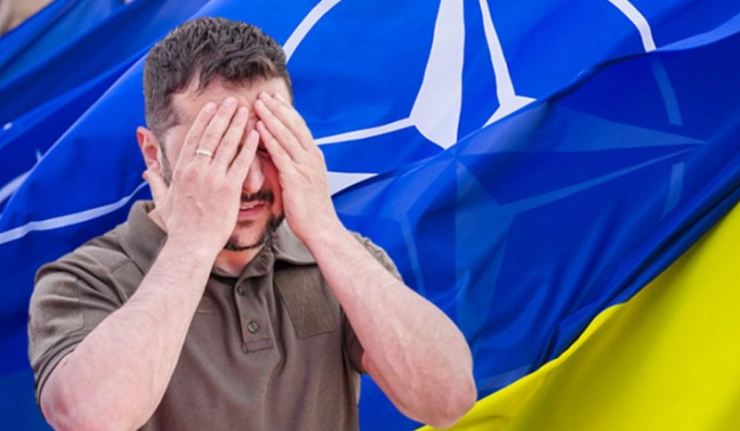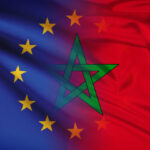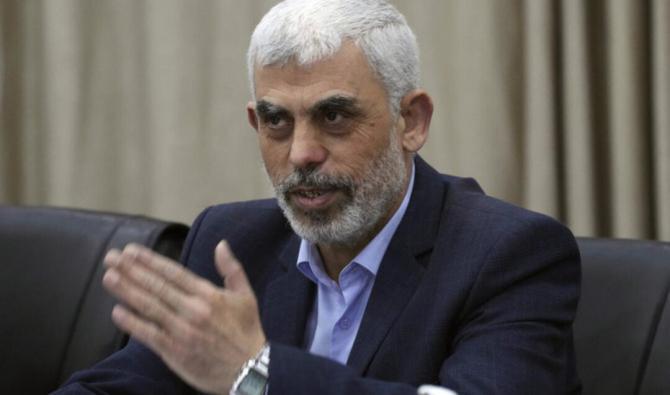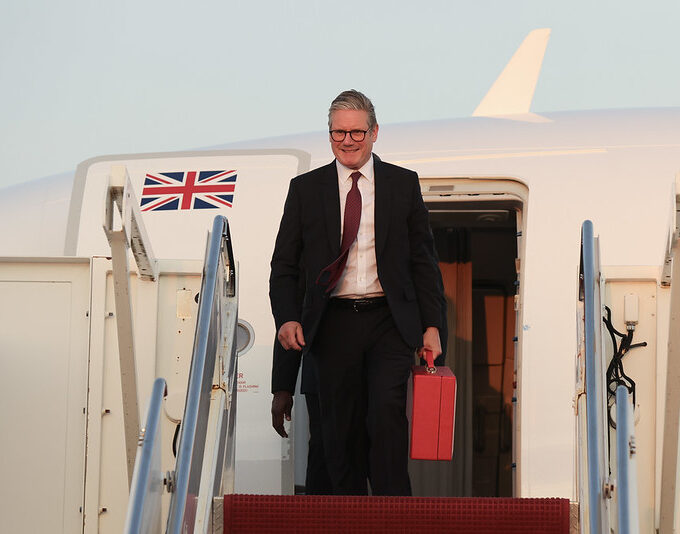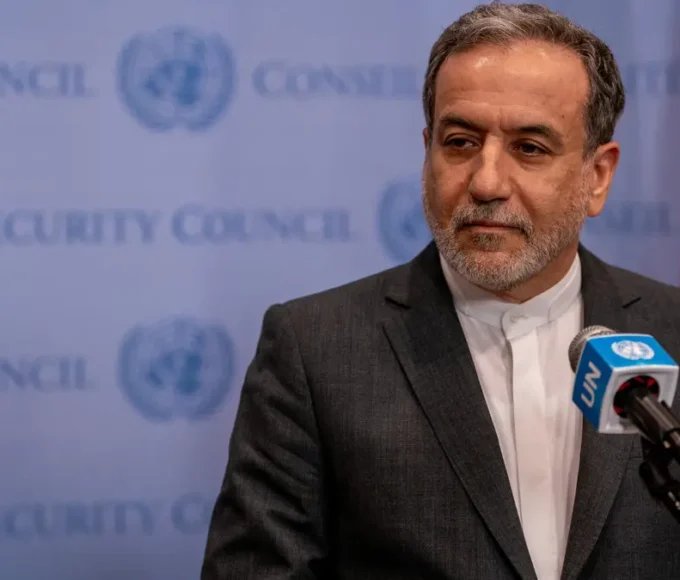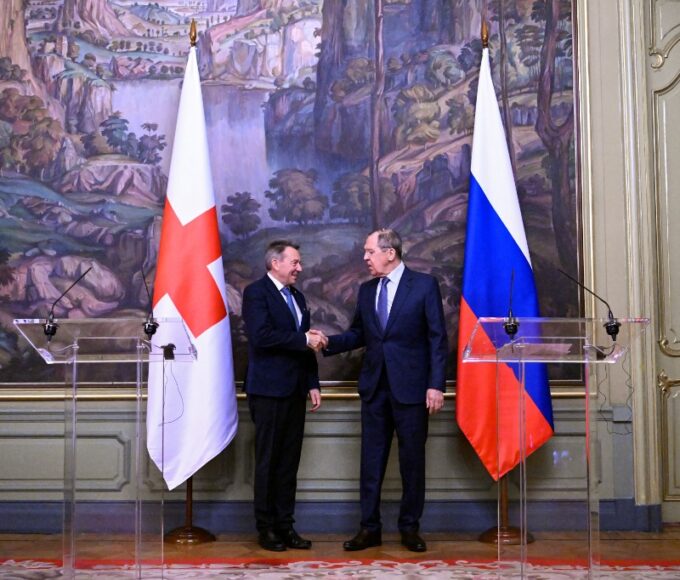More than a year after the start of the Russian special operation, the initial excitement among Europeans over the West’s reaction to Russia has dissipated. The mood instead turned to “existential dread, a nagging suspicion that [Western] civilization might destroy itself,” writes Professor Helen Thompson.
For a moment, euphoria had settled over the putative projection of the EU as a global power, as a key player, poised to compete on a global scale. At first, events seemed to work in favor of Europe’s belief in its market powers: Europe was going to bring down a great power – Russia – with a simple financial coup. The EU felt “giant”.
At the time, it was a galvanizing moment: “The war reactivated a long-dormant Manichean framework of existential conflict between Russia and the West, giving it ontological and apocalyptic dimensions. In the spiritual fires of war, the myth of the West has been renamed”, suggests Arta Moeini.
After the initial disappointment at the lack of a “quick death,” hope persisted: if sanctions were given more time and made more comprehensive, Russia would certainly crumble. That hope turned to dust. And the reality of what Europe has inflicted on itself began to emerge, hence Professor Thomson’s dire warning:
“Those who think the political world can be rebuilt by the efforts of human will have never had to bet so heavily on technology – rather than [fossil] energy – as the engine of our material progress.”
For the Euro-Atlanticists, however, what Ukraine seemed to offer – at last – was validation of their desire to centralize power in the EU, enough to earn a place at the “high table” with the US states. United as partners in the Great Game.
Ukraine, for better or for worse, underscored Europe’s deep military dependence on Washington and NATO.
In particular, the Ukrainian conflict seemed to open up the prospect of consolidating NATO’s strange metamorphosis from a military alliance to an enlightened, progressive and peaceful alliance! As Timothy Garton Ash claimed in the Guardian in 2002, “NATO has become a European peace movement” where we can see “John Lennon meets George Bush”.
The war in Ukraine is presented, in this vein, as the “war that even former pacifists can sustain. All his supporters seem to sing is ‘Give war a chance'”.
Lily Lynch, a Belgrade-based writer, says:
“…particularly over the past 12 months, female telegenic leaders such as Finnish Prime Minister Sanna Marin, German Foreign Minister Annalena Baerbock and Estonian Prime Minister Kaja Kallas have increasingly served as spokesman for enlightened militarism in Europe…”
“No political party in Europe exemplifies better than the German Greens the shift from militant pacifism to ardent pro-war Atlanticism. Most of the early Greens had been radicals during the student protests of 1968… But as the founding members entered middle age, cracks began to appear in the party – which would one day tear it apart.”
“Kosovo then changed everything: the 78 days of NATO bombing of what was left of Yugoslavia in 1999, supposedly to put an end to the war crimes committed by the Serbian security forces in Kosovo, would transform never the German Greens. For the Greens, NATO has become an active military pact, concerned with spreading and defending values such as human rights, democracy, peace and freedom, well beyond the borders of its member states.
A few years later, in 2002, an EU official (Robert Cooper) could envision Europe as a new “liberal imperialism”. The “novelty” was that Europe was renouncing hard military power, in favor of the militarization of a controlled “narrative” and controlled participation in its market. He argued for “a new age of empire,” in which Western powers would no longer be bound by international law in their dealings with “old-fashioned” states; they could use military force independently of the United Nations and impose protectorates to replace regimes that “govern badly”.
German Greens foreign minister Annalena Baerbock continued this metamorphosis by chastising countries with a tradition of military neutrality and imploring them to join NATO. She invoked the phrase of Archbishop Desmond Tutu: “If you remain neutral in situations of injustice, you have chosen the side of the oppressor”. The European left was totally seduced. The main parties have abandoned military neutrality and opposition to war – and are now championing NATO. This is a stunning reversal.
All of this may have been music to the ears of Euro-elite eager for the EU to achieve great power status, but this European Leviathan of soft power was entirely buttressed by the unstated (but essential) assumption that NATO “secured Europe’s rear”. This naturally implied that the EU had to tie itself ever closer to NATO – and therefore to the United States which controls NATO.
But the flip side of this Atlanticist aspiration – as President Emmanuel Macron has noted – is its inexorable logic that Europeans simply end up becoming vassals of Americans. Macron was instead trying to rally Europe to the coming “age of empires”, hoping to position Europe as a “third pole” in a concert of empires.
Atlanticists were duly enraged by Macron’s remarks (which nevertheless drew support from other EU states). It might even seem (to furious Atlanticists) that Macron is actually taking inspiration from General de Gaulle, who called NATO a “pretense” meant to “disguise America’s smothering of Europe.” .
Two related schisms flow from this “reimagined” NATO, however: from the hawks of Central and Eastern Europe, who want “more America and more war against Russia”, to those of the original western axis of the EU, who want strategic autonomy (i.e. say less “America” and a quick end to the conflict).
Second, it is mainly Western economies that should finance the costs and divert their production capacity to military supply chains. The economic price, non-military deindustrialization and high inflation could be enough to break Europe economically.
The prospect of a cohesive pan-European identity might be both ontologically appealing – and seen as a “proper prop” for an aspiring “global player” – but such an identity becomes cartoonish when mosaic Europe is transformed into an abstract deterritorialized identity. which reduces people to their most abstract.
Paradoxically, the war in Ukraine, far from consolidating the “identity” of the EU, as first imagined, fractured it under the effect of the concerted effort to weaken and bring down Russia .
Second, as Arta Moeini, director of the Institute for Peace and Diplomacy, pointed out:
“The American push for NATO expansion since 1991 has enlarged the alliance by adding to it a series of failed states from Central and Eastern Europe. The strategy, which began with the Clinton administration but was fully championed by the George W. Bush administration, was to create a decidedly pro-American pillar on the continent, centered on Warsaw – which would force a move to is the center of gravity of the alliance, far from the traditional Franco-German axis”.
“By using NATO enlargement to weaken former centers of power in Europe that may occasionally have opposed [Washington], such as during the build-up to the invasion of Iraq, Washington ensured a more docile Europe in the short term. The result, however, has been the formation of a 31-member behemoth with deep power asymmetries and low compatibility of interests – that is, much weaker and more vulnerable – than he believes. be”.
Here is the key: “the EU is much weaker than it thinks”. The start of the conflict was defined by a mindset bewitched by the notion of Europe as a player in world affairs, and hypnotized by the prosperity of post-war Europe.
EU leaders convinced themselves that this prosperity had given them the clout and economic depth to approach war – and face its reverses – with Panglossian bloodthirstiness. However, it is rather the opposite that happened: She put her project in danger.
In “The Imperial Life Cycle” by John Raply and Peter Heather, the authors explain this cycle:
“Empires grow rich and powerful and achieve supremacy through the economic exploitation of their colonial periphery. But in doing so, they unwittingly stimulate the economic development of that very periphery, until it can back down and eventually supplant its overlord.”
The prosperity of Europe in this post-war period is therefore not so much the fruit of its own efforts as the result of accumulations resulting from an earlier cycle, now reversed.
“The fastest growing economies in the world today are all in the old periphery; the worst performing economies are disproportionately in the West. It is these economic trends that have created our current landscape of superpower conflict – especially between the United States and China.”
The United States may think they are free from the European colonial mold, but fundamentally their model is this:
“An updated politico-cultural glue that we might call “neoliberalism, NATO and denim,” which fits into the timeless imperial mould: The great wave of decolonization that followed World War II was meant to end it. But the Bretton Woods system, which created a trade regime favoring industrial producers at the expense of primary producers and enshrining the dollar as the world’s reserve currency, ensured that the net flow of financial resources continued to move from developing countries to developed countries. Even as the economies of the New Independent States have grown, those of the G7 economies and their partners have grown more.”
A once mighty empire is now challenged and feels beleaguered. Taken aback by the refusal of so many developing countries to associate themselves with Russia’s isolation, the West is now waking up to the reality of the emerging, polycentric and fluid world order. These trends are set to continue. The danger is that Western countries, economically weakened and in crisis, try to reclaim Western triumphalism, when they lack the economic strength and depth to do so:
“In the Roman Empire, peripheral states developed the political and military capacity to end Roman rule by force… The Roman Empire might have survived – had it not been weakened by wars of choice – to its rising Persian rival.”
The final “transgressive” thought goes to Tom Luongo: “Allowing the West to continue to think it can win – is the ultimate form of eliminating a superior adversary.”
This article is originally published on reseauinternational.net


